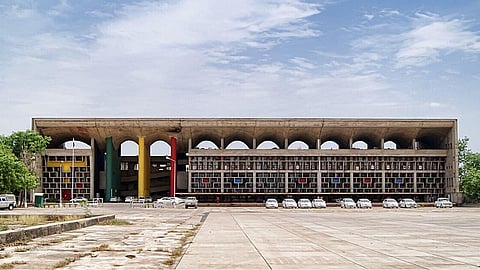

The Punjab and Haryana High Court (HC) recently disposed of a petition filed by Kaustubh Anil Shakkarwar, a law student from OP Jindal Global University, who had challenged the university’s decision to “fail” him for allegedly submitting an assignment generated by artificial intelligence (AI).
The case was concluded by a bench of Justice Jasgurpreet Singh Puri, who closed the proceedings after the university agreed to issue updated transcripts for all of the petitioner’s trimesters. Shakkarwar is pursuing a Master of Laws (LLM) at the university, reported IANS.
On November 11, Justice Puri's bench issued a notice to the university’s Registrar and the Directorate of Higher Education of Haryana after Shakkarwar filed a petition claiming that the university had denied him the opportunity to contest the allegations of plagiarism.
During the hearings, the university informed the court that the petitioner had failed to disclose that he had already cleared a re-sit examination for the Law and Justice in a Globalizing World course. To resolve the matter, the university decided to reinstate the internal assessment marks and assured that Shakkarwar’s final grade would be reflected in his transcript without any special annotations or asterisks.
The university also argued that using AI-generated content in academic submissions violated the University Grants Commission's (UGC) Promotion of Academic Integrity and Prevention of Plagiarism in Higher Educational Institutions Regulations, 2018. According to the UGC guidelines, any academic work showing over 60% similarity would warrant severe penalties, including expulsion.
However, the university decided to impose a lesser penalty in this case, citing concerns that a harsher sanction would adversely impact Shakkarwar’s academic and professional future, particularly as he is also a practicing advocate, IANS added.
Shakkarwar, however, contested the university's actions, stating that it failed to provide any concrete evidence of AI usage in his assignment and violated his right to a fair process by withholding relevant documents.
He further argued that the university had refused to clarify which specific rules prohibited AI-generated content. According to Shakkarwar, the Unfair Means Committee had already formed a “prejudiced opinion” about his case and had not given him a chance to present his defence.
